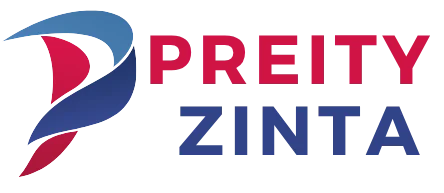Table of Contents
ToggleIn today’s gig economy, freelancing has become a viable career path for many. With the freedom to choose projects and set their own schedules, freelancers enjoy a lifestyle that traditional jobs often can’t offer. However, navigating the world of freelancing can be challenging, especially for those just starting out.
This guidebook serves as a comprehensive resource for aspiring freelancers, providing essential tips and strategies to thrive in this competitive landscape. From finding clients to managing finances, it covers everything needed to build a successful freelance career. Whether someone is looking to supplement their income or make freelancing their full-time gig, this guidebook will empower them with the knowledge to turn their passion into profit.
Overview of Freelancer Guidebook
The Freelancer Guidebook offers vital insights for individuals navigating the freelance economy. It covers practical tips and strategies aimed at fostering success in a competitive landscape. Key topics include:
- Client Acquisition: Techniques for attracting and retaining clients, including networking strategies and utilizing platforms like Upwork or Fiverr.
- Financial Management: Guidance on budgeting, invoicing, and tracking expenses to ensure financial stability.
- Skill Development: Recommendations for continuous learning and skill enhancement, crucial for remaining competitive in various fields.
This guidebook emphasizes a structured approach, equipping freelancers with the necessary tools to transition from traditional employment to self-employment effectively.
Key Components of a Freelancer Guidebook
A comprehensive freelancer guidebook contains vital information to help individuals thrive in the freelance economy. Two key components include essential skills and best practices for financial management.
Essential Skills for Freelancers
- Communication: Effective communication fosters strong relationships with clients. Clear verbal and written communication enhances project clarity.
- Time Management: Efficient time management maximizes productivity. Prioritizing tasks and setting deadlines prevents procrastination and ensures timely delivery.
- Marketing: Marketing skills are crucial for attracting clients. Utilizing social media, networking events, and online platforms helps freelancers promote their services.
- Negotiation: Negotiation skills facilitate better project terms and rates. Freelancers should confidently discuss fees and project expectations with potential clients.
- Adaptability: Adaptability enables freelancers to adjust to changing client needs. Staying open to feedback and evolving industry trends keeps skills relevant.
Best Practices for Managing Finances
- Budgeting: Creating a budget helps track income and expenses. Allocating funds for business needs and personal expenses promotes financial stability.
- Invoicing: Prompt invoicing ensures timely payments. Using professional invoicing software streamlines the billing process and reduces errors.
- Tax Preparation: Understanding tax obligations is crucial. Freelancers must keep accurate records and consider quarterly tax payments to avoid penalties.
- Emergency Fund: Building an emergency fund provides financial security. Setting aside three to six months’ worth of living expenses can mitigate income fluctuations.
- Retirement Planning: Independent retirement savings plans are essential for freelancers. Contributing to accounts like a SEP IRA or Solo 401(k) ensures long-term financial health.
Choosing the Right Niche
Choosing the right niche is crucial for freelancers aiming to thrive in the competitive marketplace. Identifying personal strengths and understanding market demand plays a significant role in this process.
Identifying Your Strengths
Freelancers start by assessing their skills, interests, and experiences. They consider the following aspects:
- Creative Skills: Include graphic design, writing, and video editing.
- Technical Skills: Cover web development, software engineering, and data analysis.
- People Skills: Encompass customer service, sales, and project management.
- Industry Knowledge: Focus on specific sectors, such as healthcare, finance, or education.
Focusing on strengths leads to a more fulfilling freelance experience while attracting clients aligned with one’s expertise.
Researching Market Demand
Understanding market demand helps freelancers select profitable niches. Freelancers should analyze:
- Industry Trends: Identify growing sectors by reviewing reports from sources like the Bureau of Labor Statistics (BLS) or industry associations.
- Target Audience: Define potential clients for various services by utilizing online surveys or forums.
- Competitive Landscape: Research existing freelancers in chosen niches through platforms such as Upwork or Fiverr to understand service offerings and pricing.
- Social Media Insights: Leverage social media analytics to gauge interest in specific services and identify content gaps.
Researching market demand ensures that freelancers position themselves effectively, maximizing their chances of attracting clients and achieving success.
Tools and Resources for Freelancers
Freelancers can leverage a variety of tools and resources to enhance productivity, streamline workflows, and secure opportunities in their respective fields.
Software and Applications
Freelancers benefit from utilizing software and applications tailored to their needs. Key tools include:
- Project Management Software: Tools like Asana, Trello, and Monday.com help freelancers manage tasks, set deadlines, and collaborate with clients.
- Time Tracking Applications: Solutions such as Toggl and Harvest enable freelancers to track billable hours efficiently.
- Invoicing Software: Applications like FreshBooks and QuickBooks simplify the invoicing process and help freelancers manage income.
- Communication Tools: Platforms like Slack and Zoom facilitate real-time communication and collaboration with clients and teams.
- Design and Creative Software: Programs like Adobe Creative Cloud and Canva provide freelancers in creative fields with necessary design capabilities.
Online Platforms for Finding Work
Freelancers can access numerous online platforms to find work. Notable platforms include:
- Freelancer: Offers a wide range of job categories, connecting freelancers with clients seeking their specific skills.
- Upwork: Features diverse projects across multiple industries, allowing freelancers to bid on jobs that match their expertise.
- Fiverr: Enables freelancers to offer services at various price points, attracting clients with distinct needs.
- Toptal: Connects top freelancers with high-profile clients, ensuring quality and professionalism in project delivery.
- PeoplePerHour: Focuses on freelancers in the UK and Europe, offering projects tailored to specific local markets.
These tools and platforms provide freelancers with the resources needed to operate efficiently and secure valuable work opportunities.
Navigating the freelance landscape can be both rewarding and challenging. With the right tools strategies and mindset freelancers can carve out a successful career tailored to their unique skills and passions. The Freelancer Guidebook serves as a comprehensive resource to empower individuals on this journey.
By focusing on essential skills effective financial management and niche selection freelancers can maximize their potential and thrive in a competitive market. Embracing continuous learning and utilizing the right platforms will enhance their ability to attract clients and secure projects.
Ultimately the freelance economy offers endless possibilities for those willing to invest the time and effort into building their dream career.







